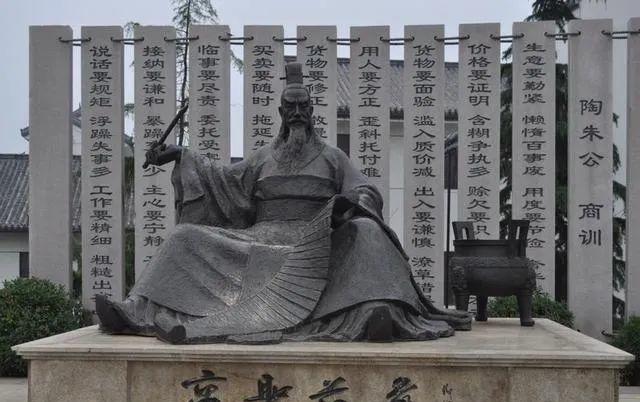Charity is one of the excellent traditional virtues of the Chinese nation. It is both a sense of personal virtue and a socio-cultural act. It is both emotional and polite. In the history of the Chinese nation, charity has always been accompanied by social progress, and has always been accompanied by harmony with mankind, warming the world with love.
"Naked Donation" Philanthropist - Fan Li
At a time when today's society praises "naked donations", the repeated "naked donations" of Fan Li's "three gatherings and three scatters" in history are still difficult to compare. The Chronicle of the Chronicle of Goods breeding describes Fan Li's charitable deeds as: "In the nineteenth year, three thousand dollars were given, and then dispersed and poor friends were scattered." It means that he has been rich three times in nineteen years, but three times he has received this money to help his poor friends and brothers in need around him. History praised him as a great benevolent man and philanthropist who was "rich and virtuous".

The worries of the world are worrying - Fan Zhongyun
The ancient Chinese Confucian thought of benevolence and loving others had far-reaching influence, so many people, especially intellectuals, regarded being kind to others as the basic criterion for dealing with people in the world. Fan Zhongyan, a famous minister of the Song Dynasty, suffered from poverty in his early years, and after becoming an official, he set up a "righteous village" to support poor families of the same clan. The idea of "worrying before the world, and enjoying the world after the world" advocated by him and the discipline of benevolent people and people have had a far-reaching impact on future generations.
"Non-smoking" hero — Lin Zexu
Lin Zexu is a famous philanthropist in history, during the Daoguang years, Lin Zexu built ten large and small warehouses in Suzhou City, buying grain from Wuxi for storage. Because this place is in present-day Changzhou, Yuanhe and Wusan Counties, Jiangsu, the history of this civil office-assisted disaster relief warehouse was named "Changyuan Wufeng Beiyicang", from 1835 to 1860 for more than twenty years, this Yicang effectively played the role of disaster relief in the famine year. After the Opium War, Lin Zexu was exiled to Xinjiang. He once again donated money to build the Longkou Canal in the border area of Ili, seeking the welfare of the people of Xinjiang and completing the last charity work for the country and the people in his life.
Master of Traditional Chinese Studies — Hu Shi
Hu Shi believes that "the cost of being a human being is benevolence, and it is constantly helping others." He was happy to help friends, fellow countrymen, students, and those who called him for help, but he never considered himself a philanthropist, and he had no interest in seizing power and accumulating money. Hu Shi's wife, Jiang Dongxiu, once complained to him: "You fund Zhang San today, li si tomorrow, and if you continue to help in this way, we will also be funded by others." Hu Shi did not think so, his credo was "because I know that the money I lent out is always 'a million profits', and there will always be interest in the world", which is the "Hu's high dividend" model created by him.
Our ancestors already had the consciousness of "reaching the world and helping the world" as early as 2,000 years ago, and many folk philanthropists have emerged throughout the dynasties. They carry out charitable acts in their own name, or big businessmen or local officials, and use their own assets to support the poor and sick, providing a certain amount of life help and emotional comfort for the poor people. Groups of conscientious duty-performers who have run for charity have integrated the power of goodness into the blood of the Chinese nation and have become the long-standing foundation of Chinese civilization.